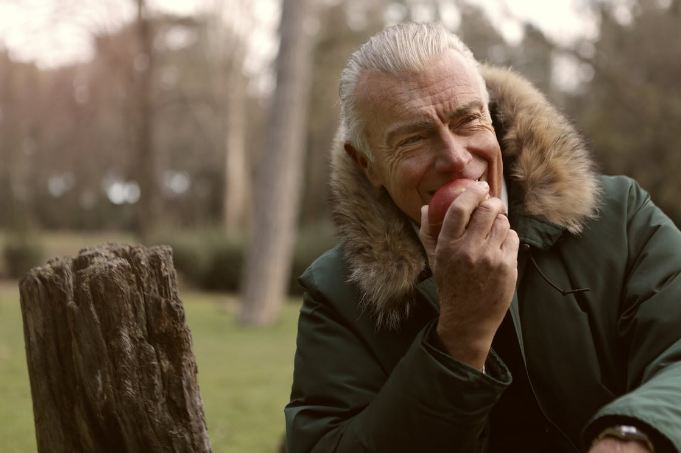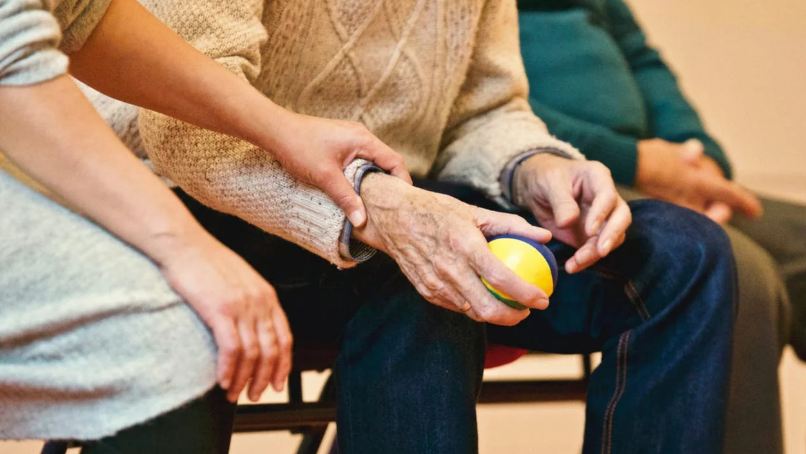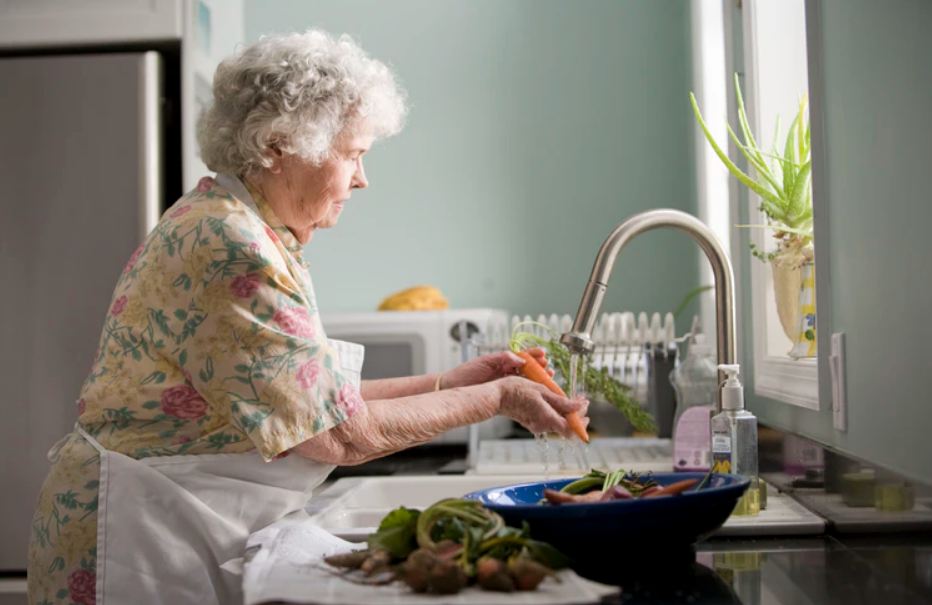No one can think of their beloved parents having elderly dietary problems, major changes in their eating habits, and changes in appetite. But we can understand the pain they face at a later age.
We all know the importance of nutrition and a healthy diet. When we age, various elderly issues occur, and our appetites can become affected. This leads to poor eating habits, which results in nutrition problems, hence health problems. And this is what we are concerned about with our parents.
If your loved one is experiencing any elderly dietary problems such as changes in eating habits or appetite, it is important to get to the bottom of it. Sometimes the reasons can be subtle, and sometimes loved ones don’t want to admit they’re having elderly dietary problems. Sometimes they don’t know. Get this book, 10 Common Causes of NUTRITIONAL DEFICIT in Senior Adults kindle edition, for a detailed review of your loved one’s nutritional diet.
Here is some helpful information that can help sort it out. Always ask a healthcare professional for advice on these matters, as serious nutrition factors may be at risk.
Common Elderly Dietary Problems
Why Eating Patterns Change
Depression is one of the very common elderly issues. Seniors may feel alone, old, or upset that their bodies and/or minds are no longer in the same “working order.” Depression is the main contributor to poor eating and elderly dietary problems. Think about it. When you feel down or upset, what happens to your appetite? Most people lose it.
Or they may overeat as a temporary way to make themselves feel good. But what do they eat? Usually, many junk foods, especially sweets, bad carbs, and bad fats with little or no nutrition.
Elderly dietary problems can also aggravate depression, but it can usually be treated. If you suspect your loved one is suffering from depression, seek help from their doctor right away.
Loneliness and isolation can occur as we age and become less mobile or experience hearing and vision changes. It becomes more difficult to socialize, yet eating has traditionally been an important social activity. Elderly dietary problems can occur just from this lack of social interaction.
Make sure you include your elderly loved ones in outings and get-togethers as much as possible and pay special attention to them so they feel included. And include foods that they especially may be interested in — but be sure they’re nutritious.
Our senses change. Aging also causes our five senses to change, smell being one. As you know, smell is directly linked with the sense of taste. So if food no longer has sensory appeal, it isn’t as enjoyable. This disinterest in food can cause severe elderly dietary problems.
Ask your loved one what smells are their favorite and what food aromas they enjoy the most. You can also play a game. They can play different puzzle games for an active mind. Have them sniff various spices and foods and identify what they are and which ones they like best. Make sure those are used in meal preparation. Try special sauces, seasonings, and dressings. Talk about foods they use to make or enjoy eating the most, and why.
Sometimes people who had used a lot of salt on their food and now have doctor’s orders for a low-sodium diet believe food just doesn’t taste the same anymore. Though, their taste buds can be re-trained by using seasonings and pepper (there are many kinds) instead.
Also, try enhancing their sense of smell by lighting scented candles with fruit or spice aromas – but only use candles if someone is there to keep an eye out.
Disinterest in cooking itself will contribute to elderly dietary problems. It may seem more difficult as we age, or not as fun when just cooking for ourselves. Or it may have actually become physically challenging to cook anymore.
Check with the local senior center — many offer special group meals weekly and sometimes daily, depending on the community. This also offers a social opportunity for the elderly.
Perhaps family or a neighbor can make a nutritious meal a couple of times a week that would also provide quality left-overs. Also, consider Meals on Wheels or other community services. Any of these can help improve elderly dietary problems.
Grocery shopping (and shopping of all kinds) can eventually become major elderly issues, especially if seniors have difficulty driving, lifting, reaching, or seeing.
A family member or friend may need to take your loved one to the store. Help choose fresh, unprocessed foods as much as possible, high in vitamins and minerals, to avoid elderly dietary problems. Try to buy enough to have extra basics on hand in case seasonal weather prevents a timely grocery trip.
If there is no one available to drive them, ask the local grocery store if home delivery is available. Many grocery stores now have online shopping, as well. After you set up a preferred shopping list the first time and save it, it is very easy to re-order and have it delivered according to the store’s schedule.
Old or contaminated food poses big food safety problems for seniors. Poor food storage is often connected to disinterest in cooking, memory loss, and depression. Loss of vision and sense of smell can also cause problems.
Make sure a family member or perhaps friend regularly checks their fridge and cupboards for expired food or items that have “gone bad.”
Memory issues such as dementia or Alzheimer’s are very serious elderly issues that may cause the elderly to forget to eat. Forgetting normal everyday activities, in fact, is a symptom of these illnesses. If you suspect your loved one actually forgets to eat – it may be more than just those “senior moments.”
All older adults should receive routine dementia screening after age 65. Depending on the causes of dementia, there are situations in which there is available dementia treatment.
Money may also be a factor contributing to elderly dietary problems. Seniors may start buying cheaper groceries that are overly processed, high in sodium, have bad carbs, saturated fats, and sugars, and are very low in nutrition. This can worsen or bring on other health conditions, including heart problems, stroke, and diabetes.
Check with your county and senior center to see what federal, state, and local programs may be available to assist. The elderly sometimes resist receiving Food Stamps, but poor nutrition can lead to malnutrition and is one of the major causes of hospitalization for seniors. I could hardly believe this, but it was verified recently in a special report on one of our news stations.
Some medications are known to cause side effects that affect appetite. Your loved one may not feel like eating, so it is important to make foods available that are appealing, loaded with nutrients, and can be eaten in small portions many times a day.
Some elderly also find it difficult to eat when they are suffering from hand tremors like Parkinson’s disease. To learn more about how you can help them, read our Guide to Selecting Assistive Devices for People Living with Parkinson’s Disease.
Teeth and mouth problems may also increase due to elderly dietary problems. If your loved one complains about difficulty chewing, pain, or if they have lost teeth, make sure they get checked by a dentist.
Poor elderly nutrition can lead to an increase in cavities and tooth loss. And poor teeth, in turn, lead to further difficulties with chewing – a vicious circle. Choose foods that are soft, like whole grain cereals, cheese, yogurt, eggs, soups, and creamed dishes. Fresh fruits and vegetables are vitally important for nutrients. They can be grated or finely chopped as well as steamed.
Find out what dental procedures Medicare and any supplementary medical plan may cover. If there is a university nearby with a dental school, they most likely offer services at much-reduced fees, especially to the elderly. Dental students are always checked and supervised by an instructor.
Many states have regular yearly (or twice yearly) free dental clinics set up in a large auditorium or gymnasium, in which the state dental society offers free dental care of all kinds, especially to seniors.
End of Life. We may dread the very idea. But it is a fact that towards the end of life, especially in the last six months, the physical appetite may wane, as well as previous emotional interest and enjoyment of food. If you suspect this may be the case, be sure to consult a medical professional for advice. However, it may be inadvisable to force your loved one to eat. Even in our local nursing homes, staff (or family) cannot force the residents to eat.
Nutrition Ideas
If your loved ones are not eating a lot, it is very important that when they do eat, they take in the nutrients their bodies need. Seniors need to get enough protein, calcium, zinc, vitamin C, vitamin E, and B vitamins.
Try whole-grain crackers, bread, cereals, whole grain chips with a little salsa or healthy dip, natural cheeses, low-salt nuts, seeds, granola, flavored yogurt, fresh fruits, small pre-cut pieces of meat, and fresh pre-cut veggies — with a flavorful dip on hand—the less processed, the better.
Fresh fruit is an excellent means of preventing elderly dietary problems and getting lots of vitamins, minerals, antioxidants that fight disease, even protein. There are over 200 fruits in our stores at various times of the year, so there’s something for everyone! Just be aware of washing them well and trying to buy organic and local as much as possible to avoid disease.
Ask your elderly loved one’s health specialist about vitamin and mineral supplements to help avoid elderly dietary problems. There are special vitamins and mineral supplements available, especially for vision, based on a prominent study called AREDS.
If your loved one has any loss of vision, ask about these supplements. Dosages for seniors will differ for any supplements, as their systems now assimilate certain vitamins and minerals differently so that they can become more easily toxic. It is also crucial to discuss all current medication to avoid problematic interactions with what they are currently taking, with supplements.
The elderly love “comfort food” and foods that remind them of their past or happy memories. But if this involves a lot of fat or sugar, changes need to be made — subtle at first, until they get used to new ways of eating. It’s important to monitor the diet of the elderly and ensure that they are getting a good balance of fresh, wholesome foods, not just prepared foods from a box or freezer.
Precautions should be taken in using fresh foods, however. Elderly dietary problems do not just involve a lack of nutrients, good food, vitamins, and minerals. Health also involves particular food safety– especially food contamination, some raw foods, fruits, and vegetables. Fresh foods are the best source of nutrients, of course, but with the elderly, special care should be taken. There is a greater risk of becoming sick.
You may also read our article about Elderly Nutrition Problems and Solutions for more information.









